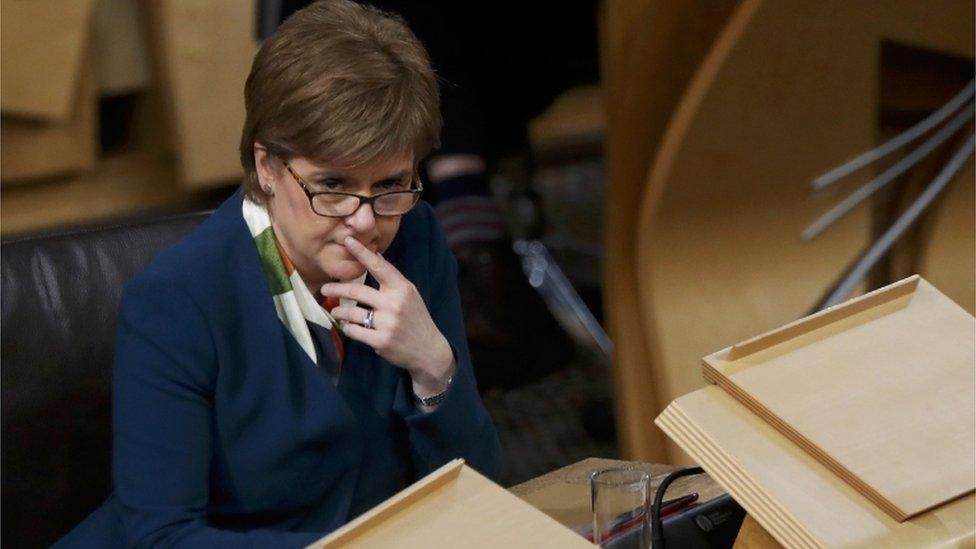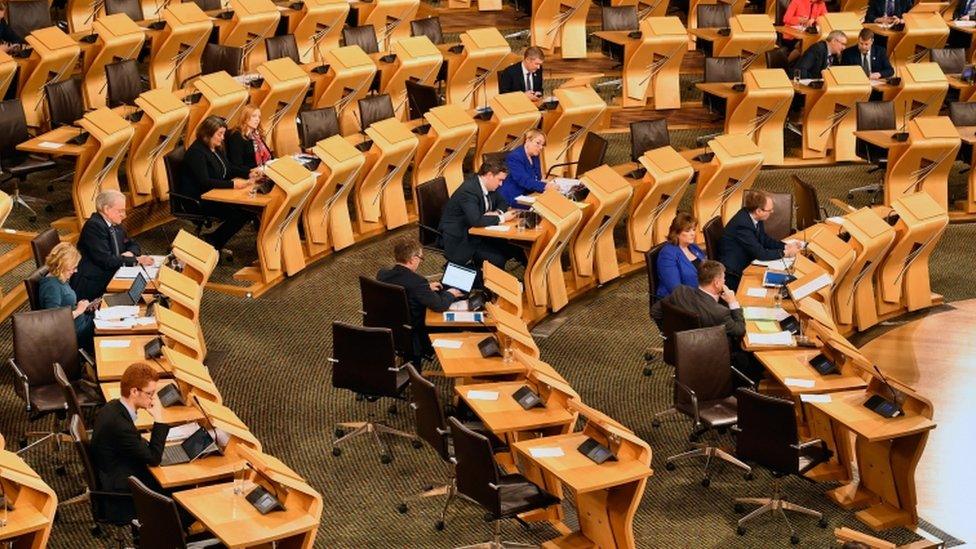Sturgeon: MSPs will have Article 50 vote
- Published

Nicola Sturgeon has said the prospect of leaving the single market makes a second independence referendum more likely
Scotland's first minister has said that MSPs will be given a vote on the triggering of Article 50 regardless of a Supreme Court ruling on the issue.
The Supreme Court is due to rule on Tuesday whether the UK parliament needs to give its approval before Article 50 is triggered.
The Scottish government argued that Holyrood should be given a say too.
Nicola Sturgeon has now said MSPs will have a vote regardless of the outcome of the case.
Prime Minister Theresa May has made clear her intention to take the UK out of the single market, with Ms Sturgeon warning the move "undoubtedly" makes a second referendum on Scottish independence more likely.
The Scottish government has put forward proposals for a separate settlement that it says would allow Scotland to stay in the single market even if the rest of the UK leaves.
When she set out her key objectives for the Brexit negotiation process last week, Mrs May promised to push for the "freest possible trade" with European countries.
And she said she wanted the UK to be able to negotiate trade deals with other countries around the world as part of plans to create a "truly global Britain".
'Economic cliff-edge'
But writing in the Daily Record, Ms Sturgeon said: "It's getting hard not to feel like the PM has her fingers in her ears when it comes to Scotland.
"This isn't some academic debate - removing us from the largest single market in the world would be devastating for people's jobs and living standards. But that seems to be of little concern to the Tories."
She added: "No matter what the court decides, I want to make this crystal clear - I intend to make sure the Scottish Parliament has the chance to vote on the question of triggering Article 50.
"If the UK government don't start showing Scotland some respect, I'll make sure that people across Scotland have the chance to choose our own future before the Tories drag us off an economic cliff-edge."

All five parties in the Scottish Parliament backed the UK remaining in the EU ahead of last year's referendum
The Supreme Court case followed an appeal against an earlier High Court rejection of the UK government's argument that it already has the powers to trigger Article 50.
Campaigners say parliament must be consulted before the government does so - although Labour has already said it would not vote against Article 50.
The Scottish government intervened in the Supreme Court case, with the country's Lord Advocate arguing that MSPs should also be consulted before Article 50 is invoked.
On Sunday, the Scottish government's Brexit minister, Michael Russell, said the SNP's 54 MPs would definitely vote against Article 50.
Brussels talks
Meanwhile, a group of MSPs has travelled to Brussels to gauge support for Scotland keeping some form of connection with both the European Union and the single market.
Members of Holyrood's European Committee said their talks would centre on what can be done to mitigate the impact of leaving the EU.
Committee members will meet senior German MEP David McAllister, who is vice president of the European People's Party in the European Parliament, and Danuta Hubner, the chairman of the parliament's Constitutional Affairs Committee.
Committee convener Joan McAlpine, an SNP MSP, said there was a "great deal of concern in Scotland" about what leaving the single market would mean for the country.
She added: "As Brexit gets closer - Article 50 is expected to be invoked in the next two months - it is vital that we explore all the ramifications of this as well as every possible avenue that helps Scotland retain as close a relationship with the EU and its single market as possible."
Deputy convener and Labour MSP Lewis Macdonald added: "We're moving into a crucial phase in the run up to Article 50 being triggered, and these meetings will help us understand the implications of Brexit for Scotland on major issues such as citizenship, the economy and trade."
EU leaders have warned that the UK cannot access the single market, which allows the free movement of goods, services and workers between its members, while at the same time restricting the free movement of people - a key pledge of the prime minister.